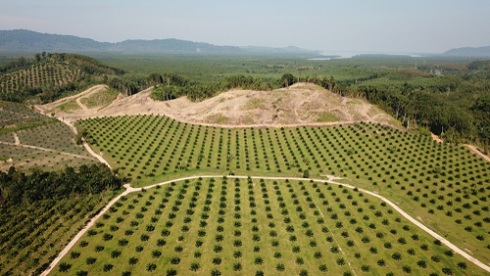The future of genetic tech: Crops for a carbon-neutral world

With time running out to create agriculture that can sustainably feed people on this planet, Richard B Flavell CBE FRSB argues that now is the time to define and set global targets for the development of new high-yield and sustainable crops
September 8th 2021
In spite of recent investments in crop development, the rate at which yields increase each year has slowed alarmingly and many crop improvement programs are not on track to meet the urgent requirements of a growing population and warming world.
In order to meet humanity’s projected food, feed and fibre needs, and the need for agriculture that helps reduce greenhouse gas emissions, we need technical breakthroughs for yield improvement, and we need them very soon. But will they emerge in time – and be accepted by governments, manufacturers and consumers – unless we adopt a crisis mode?
Now is the time for a global public debate and rapid international agreement on the requirements needed to develop the essential food crops of the future, and the timeframes in which solutions must be found. Then, much like we have seen with COVID-19, governments and other international bodies should challenge the scientific communities in public and private sectors to find these solutions, with the clear message that failure is not an option.
We need high-yield sustainable crops that require minimal pesticides and water, do not degrade soils, are resilient to climate change, and productivity that allows more land to be made available to serve as carbon sinks and habitat corridors.
Reducing food waste and making food healthier are also important, but falling rates of yield increase is the great challenge. In wheat, for example, in spite of all the investments into plant science, breeding technologies and computational biology, the average annual gain has been only 0.5-0.9% in both public and private programmes. Every 1% gain is becoming costlier, and beyond most plant breeding investment strategies, even in hybrid crops where markets are structured to allow greater profits and hence investments into breeding.
In short, the plant breeding communities are very unlikely to deliver on time, if at all, what is needed to sustain populations and environments. First we need a public debate on the needs, timelines and new features that are needed. Goals need to be defined by governments using independent groups such as the IPCC and the UN Food and Agriculture Organisation. If solutions necessarily include adding genes from other species or made in the lab, or the editing of existing genes, or if combinations of these can solve the multiple problems simultaneously, then these can be tested locally for safety and deployed when available, as the COVID-19 vaccines have been.
In the 1990s consumers bought into the arguments against GMOs – often championed by environmental organizations – and food manufacturers and retailers sought to avoid using these products. Millions are still used to buying products and eating at places that proudly advertise “no GMOs” as a sign of quality and purity. If a new wave technological solutions in crops are perceived as the latest brainchild of ‘mad scientists’ and multinational corporations, similar consumer reactions are likely. There is equivalence with the activation of the antivax movement during the COVID-19 pandemic.
Solutions need to be defined by broad international agreements where the overall means, context and purpose are well articulated – together with the consequences if solutions cannot be found. The current fashions of food and crop markets should not determine what will be available to the next generations to keep the world healthy, safe and to prevent major disasters.
We are now learning many strategic lessons from the COVID-19 pandemic that we should carry into the agricultural sector. After all, the current world food situation, coupled with the need to reduce emissions to net zero, is surely a close second to the current worldwide challenge posed by the pandemic.
Richard B Flavell CBE FRSB is a plant geneticist, consultant for the International Wheat Yield Partnership, and former director of the John Innes Centre.


